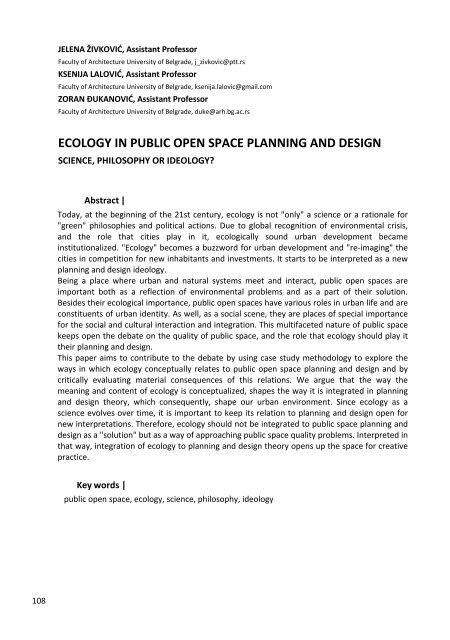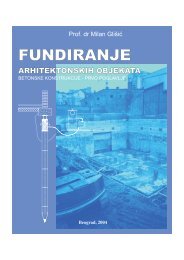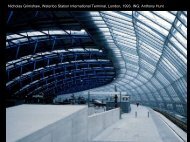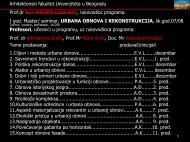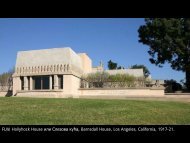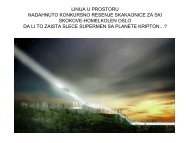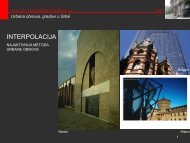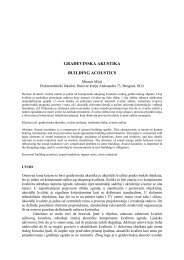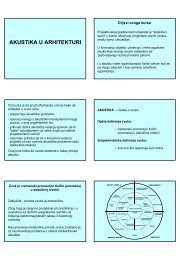Architecture and Ideology
Architecture and Ideology
Architecture and Ideology
Create successful ePaper yourself
Turn your PDF publications into a flip-book with our unique Google optimized e-Paper software.
108<br />
JELENA ŽIVKOVIĆ, Assistant Professor<br />
Faculty of <strong>Architecture</strong> University of Belgrade, j_zivkovic@ptt.rs<br />
KSENIJA LALOVIĆ, Assistant Professor<br />
Faculty of <strong>Architecture</strong> University of Belgrade, ksenija.lalovic@gmail.com<br />
ZORAN ĐUKANOVIĆ, Assistant Professor<br />
Faculty of <strong>Architecture</strong> University of Belgrade, duke@arh.bg.ac.rs<br />
ECOLOGY IN PUBLIC OPEN SPACE PLANNING AND DESIGN<br />
SCIENCE, PHILOSOPHY OR IDEOLOGY?<br />
Abstract |<br />
Today, at the beginning of the 21st century, ecology is not "only" a science or a rationale for<br />
"green" philosophies <strong>and</strong> political actions. Due to global recognition of environmental crisis,<br />
<strong>and</strong> the role that cities play in it, ecologically sound urban development became<br />
institutionalized. "Ecology" becomes a buzzword for urban development <strong>and</strong> "re‐imaging" the<br />
cities in competition for new inhabitants <strong>and</strong> investments. It starts to be interpreted as a new<br />
planning <strong>and</strong> design ideology.<br />
Being a place where urban <strong>and</strong> natural systems meet <strong>and</strong> interact, public open spaces are<br />
important both as a reflection of environmental problems <strong>and</strong> as a part of their solution.<br />
Besides their ecological importance, public open spaces have various roles in urban life <strong>and</strong> are<br />
constituents of urban identity. As well, as a social scene, they are places of special importance<br />
for the social <strong>and</strong> cultural interaction <strong>and</strong> integration. This multifaceted nature of public space<br />
keeps open the debate on the quality of public space, <strong>and</strong> the role that ecology should play it<br />
their planning <strong>and</strong> design.<br />
This paper aims to contribute to the debate by using case study methodology to explore the<br />
ways in which ecology conceptually relates to public open space planning <strong>and</strong> design <strong>and</strong> by<br />
critically evaluating material consequences of this relations. We argue that the way the<br />
meaning <strong>and</strong> content of ecology is conceptualized, shapes the way it is integrated in planning<br />
<strong>and</strong> design theory, which consequently, shape our urban environment. Since ecology as a<br />
science evolves over time, it is important to keep its relation to planning <strong>and</strong> design open for<br />
new interpretations. Therefore, ecology should not be integrated to public space planning <strong>and</strong><br />
design as a "solution" but as a way of approaching public space quality problems. Interpreted in<br />
that way, integration of ecology to planning <strong>and</strong> design theory opens up the space for creative<br />
practice.<br />
Key words |<br />
public open space, ecology, science, philosophy, ideology


